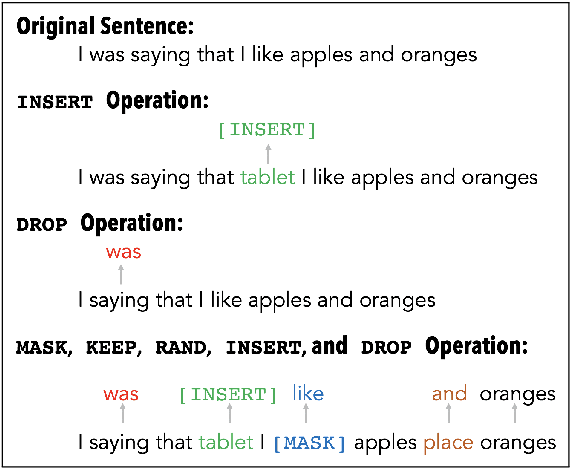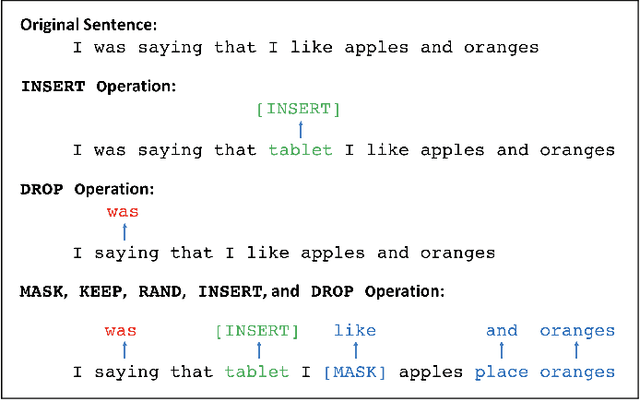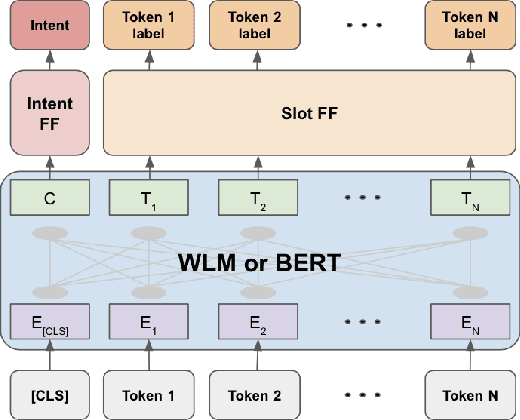Dilek Hakkani Tür
Correcting Automated and Manual Speech Transcription Errors using Warped Language Models
Mar 26, 2021



Abstract:Masked language models have revolutionized natural language processing systems in the past few years. A recently introduced generalization of masked language models called warped language models are trained to be more robust to the types of errors that appear in automatic or manual transcriptions of spoken language by exposing the language model to the same types of errors during training. In this work we propose a novel approach that takes advantage of the robustness of warped language models to transcription noise for correcting transcriptions of spoken language. We show that our proposed approach is able to achieve up to 10% reduction in word error rates of both automatic and manual transcriptions of spoken language.
Warped Language Models for Noise Robust Language Understanding
Nov 03, 2020



Abstract:Masked Language Models (MLM) are self-supervised neural networks trained to fill in the blanks in a given sentence with masked tokens. Despite the tremendous success of MLMs for various text based tasks, they are not robust for spoken language understanding, especially for spontaneous conversational speech recognition noise. In this work we introduce Warped Language Models (WLM) in which input sentences at training time go through the same modifications as in MLM, plus two additional modifications, namely inserting and dropping random tokens. These two modifications extend and contract the sentence in addition to the modifications in MLMs, hence the word "warped" in the name. The insertion and drop modification of the input text during training of WLM resemble the types of noise due to Automatic Speech Recognition (ASR) errors, and as a result WLMs are likely to be more robust to ASR noise. Through computational results we show that natural language understanding systems built on top of WLMs perform better compared to those built based on MLMs, especially in the presence of ASR errors.
 Add to Chrome
Add to Chrome Add to Firefox
Add to Firefox Add to Edge
Add to Edge